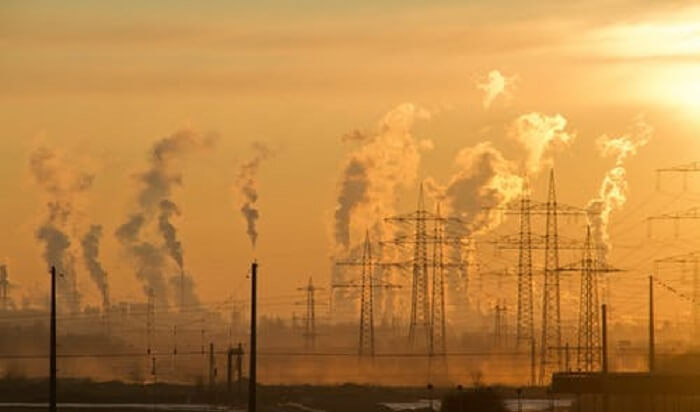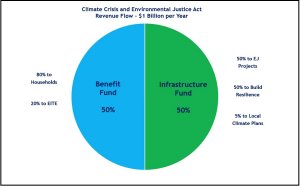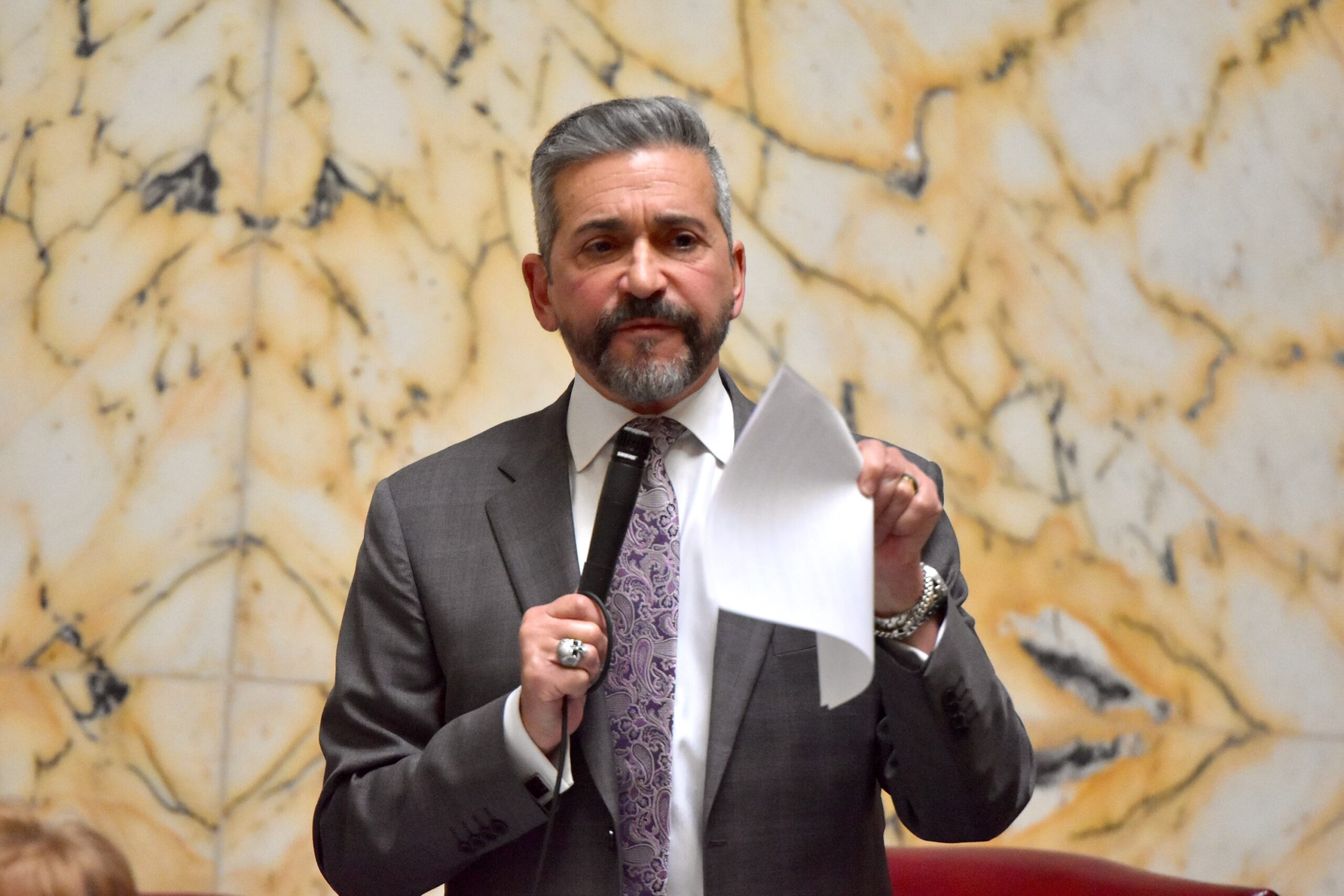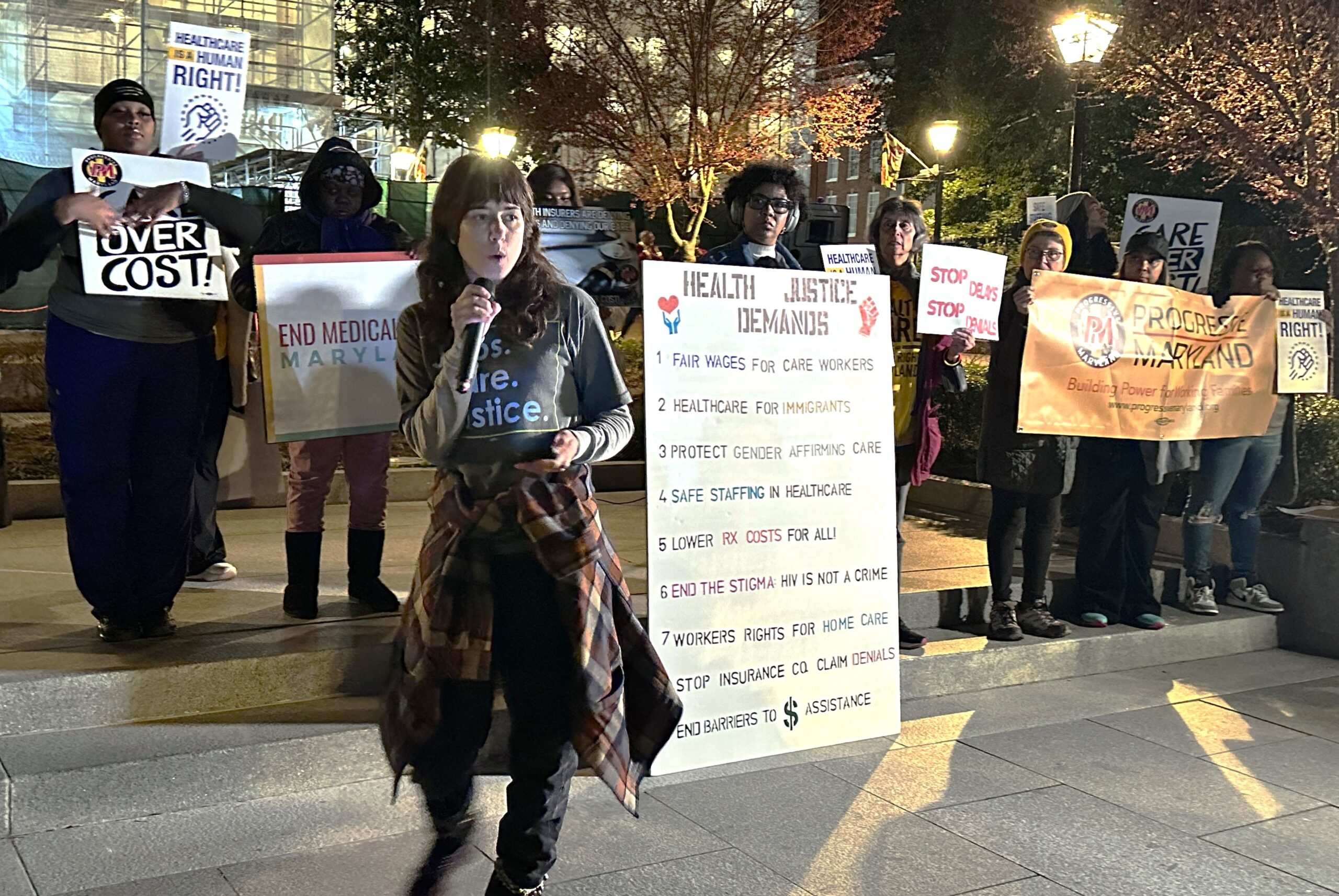Opinion: The Climate Crisis and Environmental Justice Act Must Pass in ’22

By Wandra Ashley-Williams
The writer is regional director of Climate XChange.
Marylanders know that changes in the climate are threatening the future of its citizens, its economy and its infrastructure. These changes are caused by pollutants entering the atmosphere from the burning of fossil fuels, and in large part from the transportation sector.
According to the Maryland Department of the Environment, transportation is the largest source of emissions in the state. Carbon dioxide pollution increasingly threatens the health and well-being of Marylanders. To protect the public health, economic well-being and natural treasures in Maryland, the state must reduce harmful air pollutants such as GHG emissions with practical solutions.
It is clear that a combination of regulations, carbon pollution pricing and other complementary policies are needed to meet the state’s emissions reduction goals. The Climate Crisis and Environmental Justice Act (CCEJ), which will be introduced this upcoming session of the General Assembly, incentivizes the reduction of planet-warming pollution from burning fossil fuels, and its passage would put Maryland on a common-sense, practical pathway toward a sustainable, vibrant economy.
The bill will generate billions of dollars for investment in clean energy infrastructure, while simultaneously protecting Maryland’s most vulnerable populations, low- and moderate-income households, and energy intensive, trade-exposed small businesses from financial harm.
The CCEJ is a revised version of the Climate Crisis and Education Act, which was introduced in the 2021 legislative session by Del. David Fraser-Hidalgo and Sen. Benjamin Kramer. Two notable changes to the bill are the removal of the high emissions vehicle fee and the Education Fund. The HEV fee is now a companion bill to the CCEJ and has been pre-filed as the New Motor Vehicles – Pollution Fee.
Burning fossil fuels like coal and natural gas is the source of pollution that’s inflicting harm on our communities and our climate, and they must be eliminated. The first objective of the bill is to set the following new statewide emissions reduction goals consistent with the current science:
- Reduce emissions 60% from 2006 levels by 2030;
- Reduce emissions 100% from 2006 levels by 2040; and
- Achieve negative emissions after 2040.
These goals also complement existing programs like the Regional Greenhouse Gas Initiative (RGGI).
The fee
CCEJ will place a fee on all imported fossil fuels. Fossil fuel companies will be charged $15 per metric ton of carbon pollution from the combustion of non-transportation fossil fuels in Maryland. That price will rise $5 each year and cap at $60 per metric ton. Transportation fuels — mainly gasoline and diesel — will be charged a fee that will start at $10 per ton and rise $3 annually and cap at $37.
The fee on fossil fuels shall be collected at the first point of sale and by the entity transporting the fossil fuel into the state. The fee collected may not be passed through as a direct cost to the end user of fossil fuels or a utility customer.
The revenue
The CCEJ also includes policies to mitigate inequities that could arise from the implementation of the pollution fee. It will generate billions of dollars for investment in clean energy infrastructure and protect Maryland’s most vulnerable communities. Two funds will be created with the revenue generated from the pollution fees collected as shown in the revenue flow graphic below:
1) The Household and Employer Benefit Fund will direct 50% of the total revenue to low- and moderate-income households and energy-intensive, trade-exposed (EITE) businesses to protect them from financial harm because of this policy. Eighty percent of these funds will go to a household benefits account, and the remaining 20% will be allocated to an employer benefit account.
2) The Climate Crisis Infrastructure Fund will direct 50% of the revenue toward investments in initiatives that improve the health and welfare of Maryland citizens. It will also invest in projects that are directly located within communities suffering most from environmental injustice.
Here’s how:
- At least 50% of the infrastructure account shall be invested in projects that are directly located within and provide meaningful benefits to environmental justice communities.
- Up to 5% of the infrastructure account shall provide technical assistance, capacity and planning tools to qualified county and municipal governments to develop local climate action plans and investment proposals. Due consideration shall be given to counties and municipalities containing environmental justice populations.
- Up to 50% of the infrastructure account shall be disbursed to qualified county and municipal governments for projects to mitigate emissions and build resilience.

The Climate Crisis Council
The CCEJ requires the Department of the Environment to establish a Climate Crisis Council to develop a plan to achieve emissions reductions targets. In addition, it establishes the Fee and Investment Initiative that will help fund actions to reduce emissions, enhance resilience to climate impacts, and ensure an equitable transition for workers and communities that depend on fossil fuels.
The fierce urgency of now
We must take action now to protect our planet for future generations.
Dr. Martin Luther King Jr. made this profound statement when he delivered his famous “I Have a Dream” speech Aug. 28, 1963, at the Lincoln Memorial on the Washington, D.C., National Mall: “We are now faced with the fact that tomorrow is today. We are confronted with the fierce urgency of now. In this unfolding conundrum of life and history, there ‘is’ such a thing as being too late. This is no time for apathy or complacency. This is a time for vigorous and positive action.”





 Creative Commons Attribution
Creative Commons Attribution